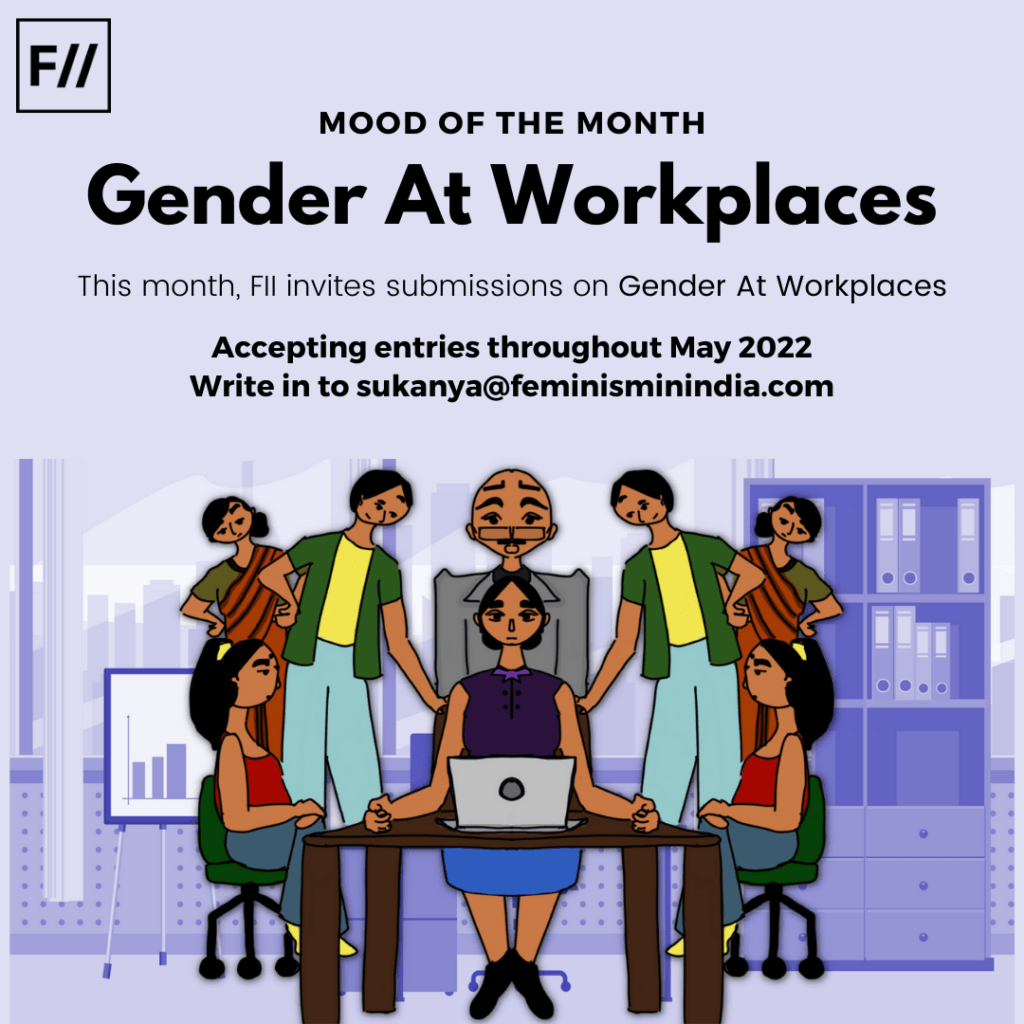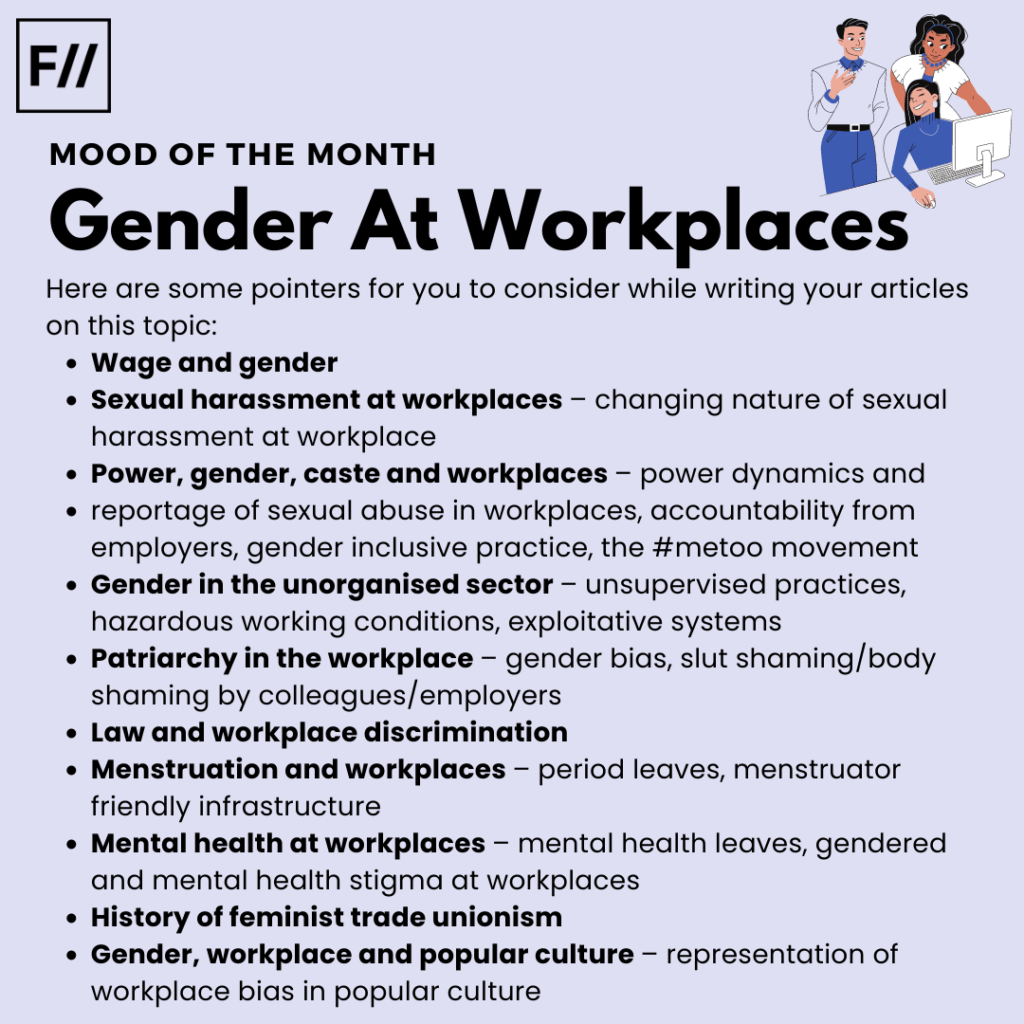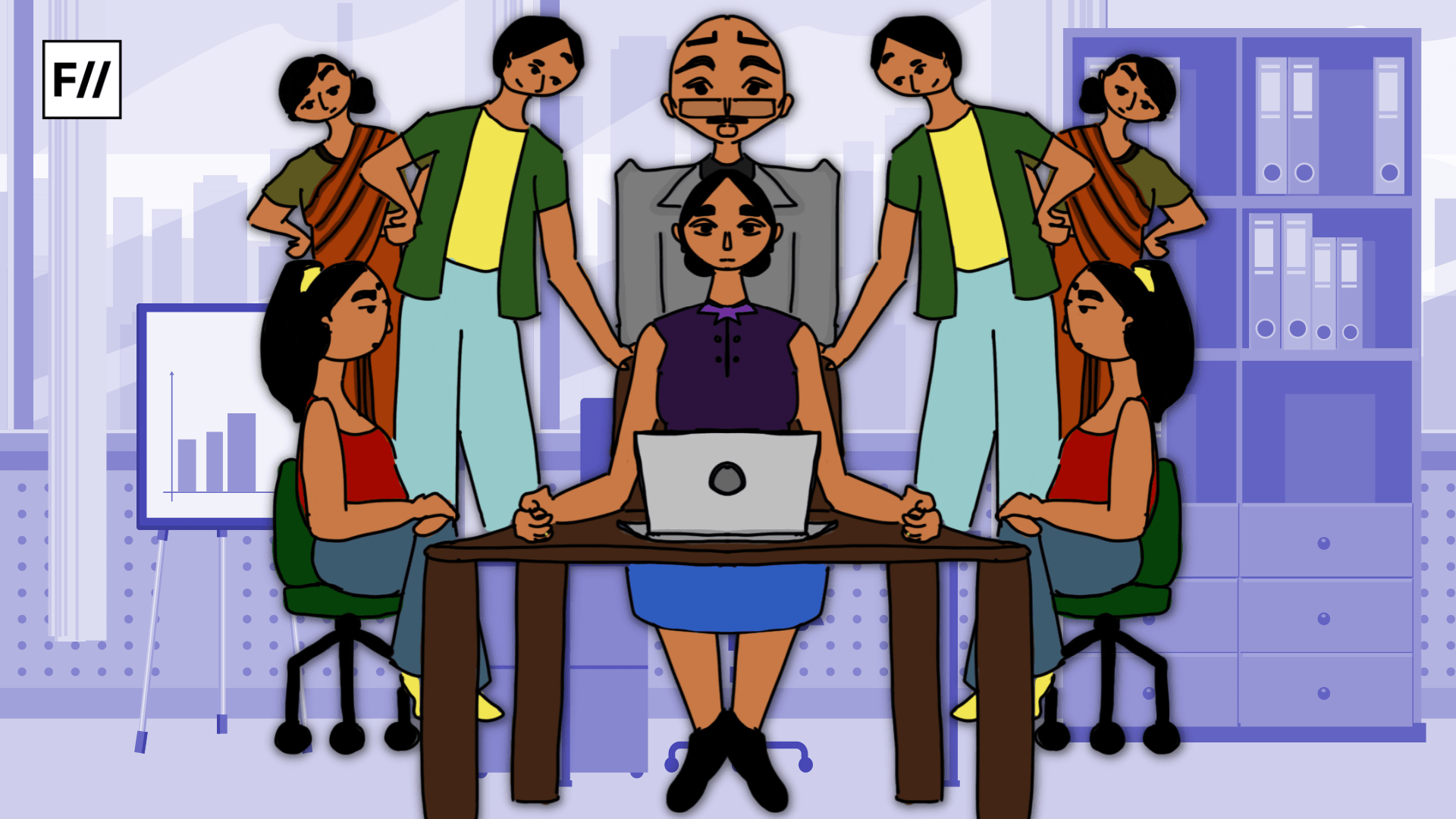The workplace is one of extreme relevance for all individuals because it affects their survival and quality of life. The workplace ought to be an equal playing field where employees are given opportunities to grow, contribute and thrive. But a look at workplace conflicts like unequal wages, indiscriminate work hours, lack of employee benefits and the like, point towards the fact that workplaces reflect biases and often become structures built on exploitation and discrimination.
Gender is an important marker of marginalisation at the workplace. Sexual harassment, differential treatment, lack of menstrual leaves, pay gap, bias against working mothers, disparity in promotions, non-inclusive infrastructure and many other factors that create imbalances in employee experiences are based on gender.
May 1st is International Labour Day, and May is a month that sparks discussions on employee rights, workplace parity and employer accountability. In this context, we at Feminism In India invite submissions on Gender At Workplaces throughout May, 2022
There has been continuous discourse on the manifestation of gender-based harassment at the workplace. In 1997, the Supreme Court of India introduced the Vishaka Guidelines, which are a set of procedural methods to be followed at the workplace in case of the occurrence of sexual harassment. These guidelines widen the scope of sexual harassment to include all kinds of unwelcome remarks, propositions and advances. They also hold the employer accountable for ensuring that complaints of sexual harassment at the workplace are duly addressed.
The workplace is one that is riddled with numerous kinds of hierarchies. There is a definite power structure within most workplaces, which determines how much bargaining capacity each stakeholder has in the equation. In such a scenario, considering that work is important for sustenance, it is very taxing for individuals, especially from marginalised gender identities to report abuse of power, exploitation and discrimination.

In the unorganised sector, these problems become much worse due to the lack of intervening policies or records of how employees are treated. Women and individuals from the trans communities, as well as oppressed caste locations suffer doubly at the hands of exploitative employers who take advantage of their labour and refrain from paying them adequately or ensuring they have safe, hygienic working conditions.
Also read: Does The POSH Act Apply When Working From Home During Lockdown?
May 1st is International Labour Day, and May is a month that sparks discussions on employee rights, workplace parity and employer accountability. In this context, we at Feminism In India invite submissions on Gender At Workplaces throughout May, 2022.

We hope to add to the conversations by addressing the various ways in which gender becomes a crucial component of workplace conflicts. Here are some pointers for you to consider while writing your articles on this topic:
- Wage and gender – unequal pay, discrimination in promotions, bias against working mothers
- Sexual harassment at workplaces – changing nature of sexual harassment at workplace, virtual offices and sexual harassment, Vishaka guidelines, POSH Act, reporting workplace abuse
- Power, gender, caste and workplaces – power dynamics and reportage of sexual abuse in workplaces, accountability from employers, gender inclusive practices, the #metoo movement
- Gender in the unorganised sector – unsupervised practices, hazardous working conditions, exploitative systems
- Patriarchy in the workplace – gender bias, being subordinated, assignment of gendered expectations, discrimination based on relationship status, casual sexism, slut shaming/body shaming by colleagues/employers
- Law and workplace discrimination – legal aspects, current observations, social commentaries on legal interventions in workplace regulations
- Menstruation and workplaces – period leaves, menstruator friendly infrastructure, hygiene practices, sanitation and gender at the workplace
- Mental health at workplaces – mental health sensitive practices, mental health leaves, gendered and mental health stigma at workplaces
- History of feminist trade unionism
- Gender, workplace and popular culture – representation of workplace bias in popular culture
This list is not exhaustive and you may feel free to write on topics within the theme that we may have missed out here.
We understand that some topics may be personal and hence, if you wish to publish them anonymously, kindly mention that in your email. Please read our submission guidelines before you send us your entries. You may send in your submissions to sukanya@feminisminindia.com
We look forward to your drafts and hope you enjoy writing them.
Also read: Assessing The State Of Women In The Unorganised Sector Under POSH Act 2013
Featured Illustration: Ritika Banerjee for Feminism In India
About the author(s)
Feminism In India is an award-winning digital intersectional feminist media organisation to learn, educate and develop a feminist sensibility and unravel the F-word among the youth in India.




